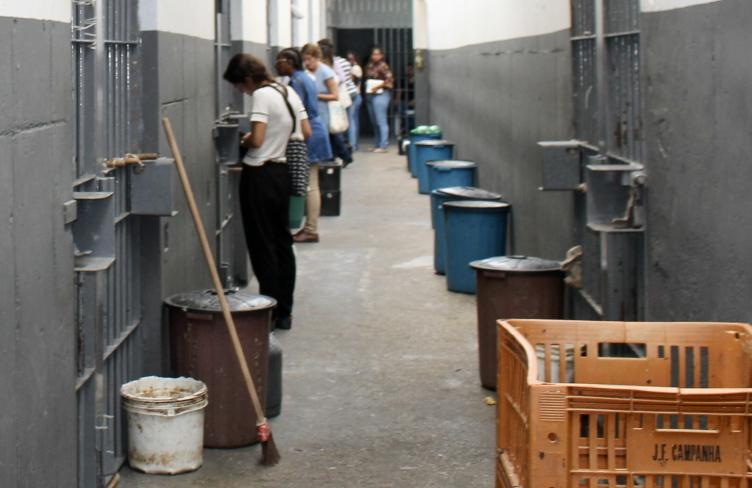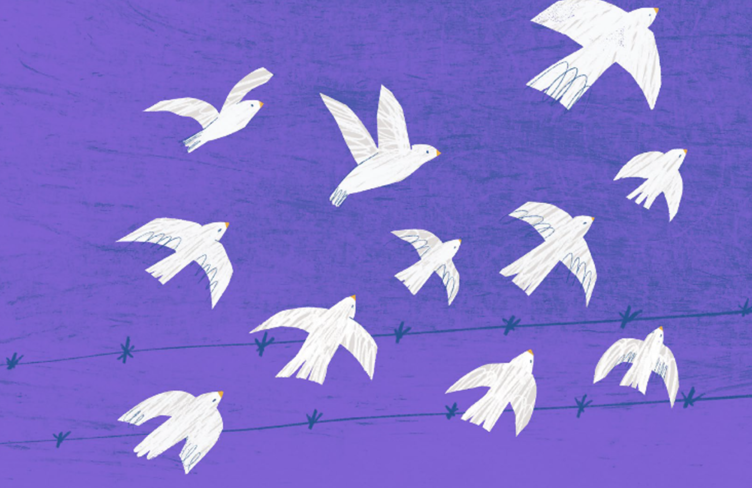
Whistleblowing is the disclosure of information about wrongdoing. Without whistleblowers, many human rights violations would never come to light. In the words of the UN High Commissioner for Human Rights, Navi Pillay, “we need them".
In 2013, Rod St George, a former officer with G4S, a private security company, at the Manus Island detention centre, described to the media a situation in which sexual abuse of detainees was an almost daily occurrence, taking place with the full knowledge of guards, who would either ignore or cover up abuses.
In 2011, after the death of Jimmy Mubenga, written testimony to the UK parliament by four G4S whistleblowers alleged that asylum seekers on deportation flights were routinely mistreated. This included bending deportees over in their seats and placing their head between their legs, a technique known as “carpet karaoke” because it would force detainees, struggling for breath, to shout downwards toward the floor.
Blowing the whistle on torture and mistreatment is an important act but it is also a courageous one. It may seem obvious that staff would speak up about this kind of abuse but the decision to do so is complicated for many by the fact that most whistleblowers suffer serious reprisals for speaking out, even in cases where the information they disclose reveals serious violations of human rights.
This is especially true in security sector institutions, such as the police, armed forces, intelligence services, and prison system. The tight-knit working culture found in many such institutions means that co-workers and bosses will often turn on perceived defectors and punish them with harassment, bullying and even violence. In places where the disclosure of classified information is criminalized, public personnel may even face prosecution for speaking out.
This leads to a culture of silence in which security sector personnel will not speak up about torture or mistreatment, even when they know it to be wrong.
This silence means there is often a gap between security sector personnel who have information about wrongdoing and the oversight bodies who seek to prevent it.
Well-founded fear
National Human Rights Institutions (NHRIs) often have formidable access to information powers, including the right to access all people, places and documents relevant to the fulfilment of their mandates. These powers, however, are not enough when those who have information about torture stay silent because they are afraid to speak out.
The decision by several prominent security sector whistleblowers to go directly to the media with their information suggests that they had little faith that raising the alarm about wrongdoing with authorised bodies would either be effective or would protect them from retaliation. This is a well-founded fear.
Nevertheless, NHRIs (and NPMs) can encourage people to come forward with information about torture and ill-treatment in a number of ways.
Ensuring protection
First, they can advocate for a legal framework that protects those who disclose wrongdoing from all kinds of retaliation, including administrative and legal proceedings, physical or emotional harm, and harassment. This includes ensuring that no information that shows serious human rights violations can be considered properly classified under the law.
Second, they can ensure that they protect the identity of those who seek to make confidential submissions, and protect both the information disclosed, as well as the fact that a disclosure has even been made.
Third, they can rigorously investigate retaliation, including—where they have such powers—by issuing subpoenas for persons and records and hearing testimony under oath or affirmation. Where they find evidence of retaliation, they can require public authorities to take remedial or restorative action.
Recogition at international level
The importance of such protections, including by NHRIs, have increasingly been recognised at the international level. For example, the Parliamentary Assembly of the Council of Europe promulgated a Resolution on the Protection of Whistleblowers in 2010 which outlined the elements of appropriate legislation, and invited member states to review existing laws with a view to strengthening whistleblower protection throughout Europe. This prompted the adoption by the Committee of Ministers of a Recommendation on the Protection of Whistleblowers which seeks to place whistleblower protection squarely within a human rights and democratic accountability framework. Likewise, in 2010, the UN Special Rapporteur on The Protection and Promotion of Human Rights while Countering Terrorism promulgated a compilation on intelligence services and their oversighthttp://fas.org/irp/eprint/unhrc.pdf. This compilation included specific guidance on disclosures from within intelligence and security services.
The 2013 Global Principles on National Security and the Right to Information (the Tshwane Principles) provide detailed guidance on the protection of public personnel who disclose information showing wrongdoing, as well as specific principles on information relating to the right to liberty and security of persons, the prevention of torture and other ill-treatment, and the right to life.
The crucial role of NHRIs
People working in the security sector who have blown the whistle on torture are few and far between. Richard Colvin—who raised the alarm about Canadian involvement in the torture of Afghan detainees—was subject to financial and reputational attacks by the government. John Kiriakou—who revealed information to the media about the torture of detainees by the CIA—is now in jail, for revealing the name of a covert agent to a journalist.
The chilling effect of such reprisals is huge. Fearing retaliation, many individuals who have evidence of torture either stay silent or leave. The role of NHRIs—who can meet with security sector personnel, encourage disclosures and provide protection to those who come forward—is crucial if the voices of those brave individuals who want to speak up about torture are to be heard.
This post focuses on whistleblowing by public personnel and on reprisals made against them. Detainees who disclose information to visiting mechanisms are also subject to serious reprisals. See the APT paper on Mitigating the Risk of Sanctions for more details.


